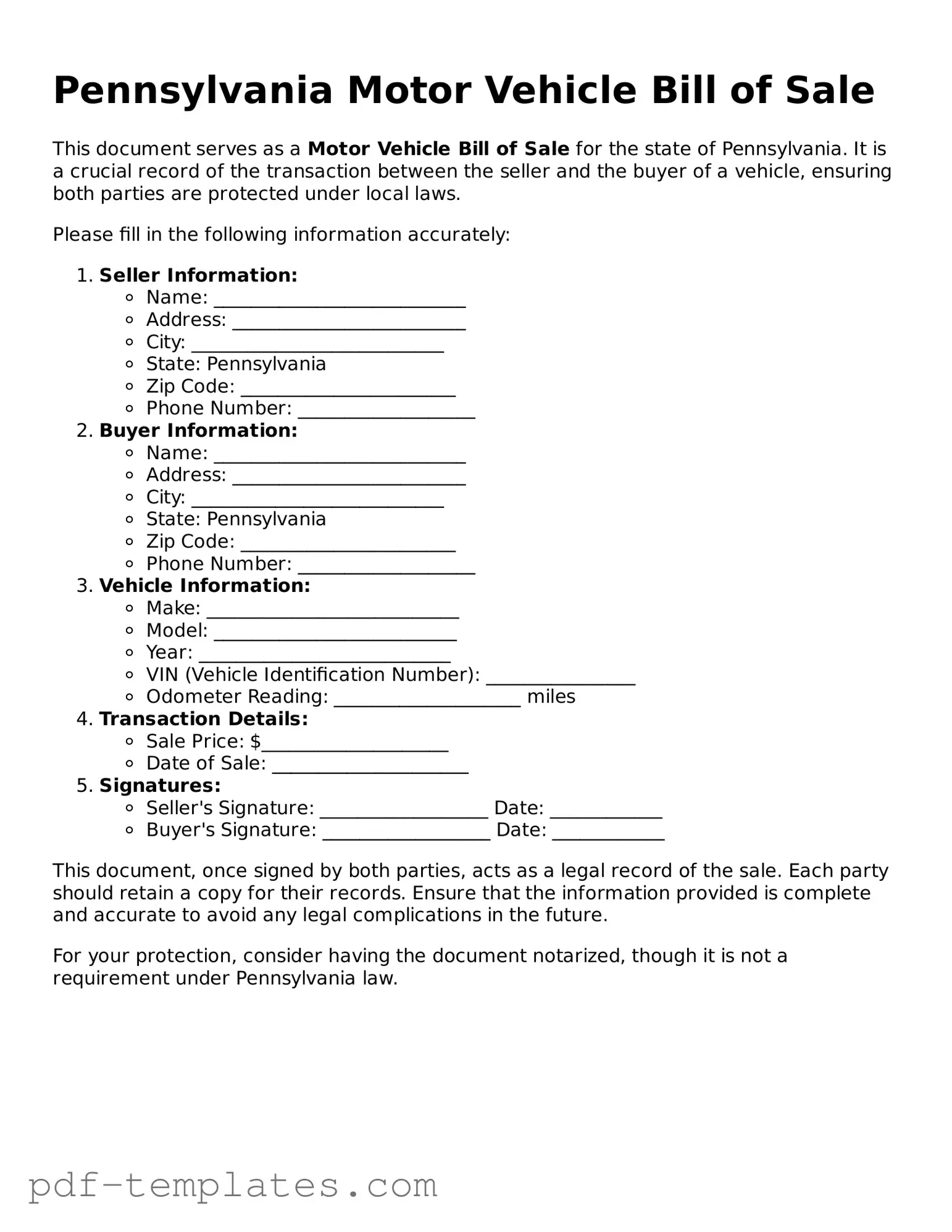The Pennsylvania Motor Vehicle Bill of Sale form bears resemblance to the general Bill of Sale, which serves as a legal document to transfer ownership of personal property. Like the motor vehicle version, this document includes details about the buyer, seller, and the item being sold. Both forms require signatures from the involved parties, solidifying the transaction and providing proof of ownership transfer.
Another document similar to the Motor Vehicle Bill of Sale is the Boat Bill of Sale. This form is used when a boat changes hands, outlining the same essential elements: the identities of the buyer and seller, a description of the boat, and the sale price. Both documents protect the interests of the buyer and seller, ensuring clarity in ownership rights.
The Aircraft Bill of Sale is also comparable. It serves to document the sale of an aircraft, containing information about the aircraft’s registration and serial number. Just like the motor vehicle form, it requires signatures from both parties and may need to be filed with a regulatory body, ensuring that ownership is officially recognized.
In addition, the Real Estate Bill of Sale is another similar document. While it pertains to the sale of property rather than vehicles, it shares the same fundamental purpose: to confirm the transfer of ownership. This document typically includes details about the property and any included personal items, much like how the Motor Vehicle Bill of Sale details the vehicle being sold.
The Equipment Bill of Sale is also akin to the Motor Vehicle Bill of Sale. This document is used for the sale of various types of equipment, from machinery to tools. It similarly outlines the buyer and seller's information, a description of the equipment, and the sale price, ensuring both parties are clear on the transaction.
A Motorcycle Bill of Sale serves a similar function specifically for motorcycles. It includes the same essential components as the Motor Vehicle Bill of Sale, such as the vehicle identification number (VIN), the buyer and seller’s information, and the purchase price. This document also acts as proof of ownership transfer and is often required for registration purposes.
The Trailer Bill of Sale is another related document. This form is used when a trailer is sold, capturing details about the trailer and the parties involved in the transaction. Like the Motor Vehicle Bill of Sale, it provides legal protection and clarity regarding the ownership transfer.
The RV Bill of Sale is similar in that it pertains to the sale of recreational vehicles. This document outlines the specifics of the RV, including its make, model, and VIN. It ensures that both the buyer and seller have a clear understanding of the transaction, much like the Motor Vehicle Bill of Sale does for cars.
The Mobile Home Bill of Sale also aligns with the Motor Vehicle Bill of Sale. This document facilitates the transfer of ownership for mobile homes, detailing the buyer and seller’s information and the mobile home’s specifics. Both documents serve to protect the rights of both parties in the transaction.
Finally, the Firearm Bill of Sale is relevant in this context as well. It documents the sale of firearms, requiring information about the buyer and seller, as well as details about the firearm itself. Similar to the Motor Vehicle Bill of Sale, it serves to provide legal evidence of the transfer of ownership and ensures compliance with applicable laws.
